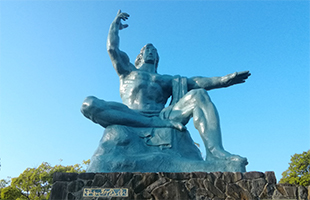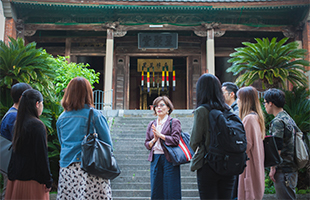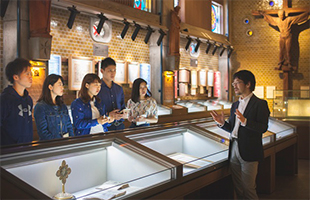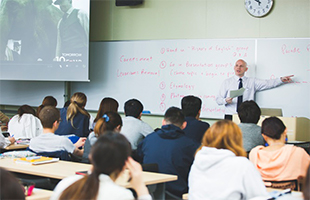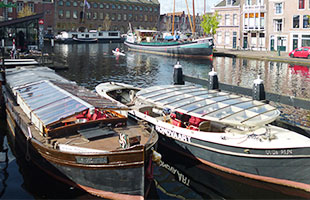Education
Dean’s Message
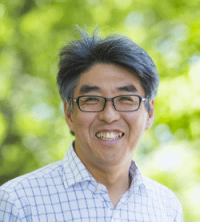
Prof. Takenori NOGAMI
An Intellectual Voyage Toward a Future Multicultural Society
Humanities Knowledge and Social Science Principles for the Future
Confusion or integration, conflict or friction, tolerance or inclusion—what do we envision for the future of a “multicultural society”?
Despite the feeling of global interconnectedness brought about by all of humanity experiencing the threat of the COVID-19 pandemic, we continue to witness wars and conflicts around the world. Contrary to the ideal of global unity, our world appears increasingly divided and ever more uncertain.
Human cultures are diverse, and it is precisely this diversity that enriches us. Through the interaction and fusion of different cultures, new forms of civilization have continuously emerged. At the same time, however, we have yet to successfully control the friction generated when different cultures and civilizations come into contact. Such tensions arise not only at the level of nation-states, but also within our everyday societies. We must admit that humanity is still immature in its pursuit of a truly rich and ideal multicultural society. For this reason, we must continue to deepen our understanding of humanity itself.
“Man is but a reed, the weakest in nature; but he is a thinking reed.” These words of the French philosopher Blaise Pascal emphasize the importance of thought, suggesting that thinking lies at the very essence of being human.
Yet today, humans are no longer merely weak “reeds.” The concept of the “Anthropocene” has been proposed as a new geological epoch—one defined by human activity. Even without the use of nuclear weapons, humanity has become a powerful presence capable of exerting profound influence on the Earth’s environment itself.
To properly govern this power, we must pursue modes of thinking that are even more advanced than technological progress. At the same time, the boundary between humans and AI (artificial intelligence) in the realm of thinking has become increasingly ambiguous. If this trend continues unchecked, that boundary—and perhaps even the essence of humanity—may be eroded, slowing our capacity for deep reflection. Fundamental questions are being posed once again: What does it mean to be human? What is the role of society?
At the School of Global Humanities and Social Sciences, students explore humanity and society through the knowledge of the humanities and the principles of the social sciences. Our curriculum comprises four programs—International Public Policy, Social Dynamics, Human and Cultural Studies, and Language and Communication—along with the Dutch Studies Program. Through diverse perspectives and academic pathways, students engage with the world in a comprehensive manner.
Learning takes many forms. It may involve intensive engagement with academic literature, immersion in fieldwork, or rigorous discussion and debate. Equipped with these approaches to learning and with language—particularly English, the most effective tool for mutual understanding—students embark on an intellectual voyage toward a better future multicultural society.
Our mission, as the only faculty in Japan bearing the name “Global Humanities and Social Sciences”, is to cultivate globally-minded humanists who possess a deep understanding of humanity and a strong capacity for embracing diversity. Let us learn together, deepen our thinking, and work toward building a better multicultural society for the future.
Dean of the School of Global Humanities and Social Sciences



